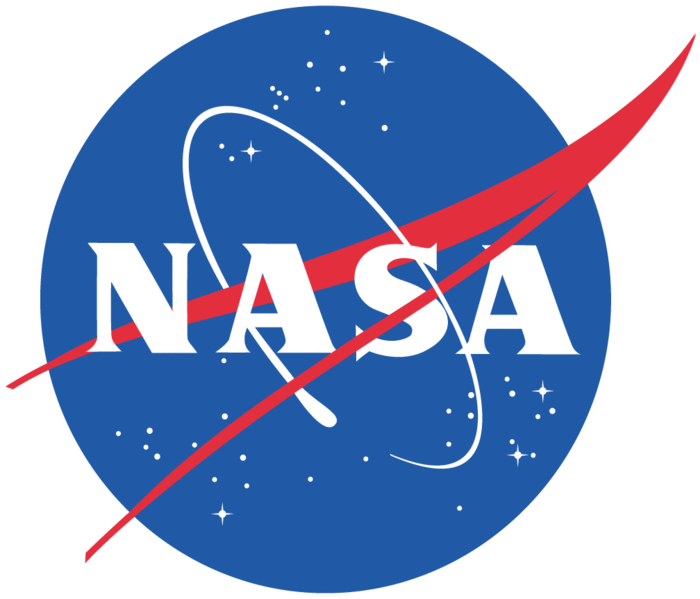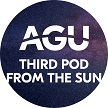Third Pod Presents: Sci & Tell – Earth Day at 50, Stories from NASA

This year is the 50th anniversary. To celebrate, we chatted with over a dozen NASA scientists about what Earth Day means to them in this special compilation episode!
This episode was produced and mixed by Shane M Hanlon.
Transcript:
Shane Hanlon: Growing up in rural Pennsylvania was different from how many of my colleagues and friends were raised. Not necessarily b/c of the isolation, the lack of cable TV or internet (side note – when I moved out to go to college, my parents got DSL, satellite TV service, and their first LCD TV to go w/ it – thanks folks), or the fact that I lived in a township of less than 700 people. It was because I grew up on a Christmas tree farm…and I didn’t know it. When my father bought our 10 acres, about a quarter of it wasn’t wooded but also wasn’t any good for structures. So, as he describes it, he just decided to start planting Christmas trees as something to do and to take up space. 25 years later, I was an adolescent, and we had hundreds that needed to be trimmed, mowed & weed wacked around, and every once in a while pruned of galls – these walnut-sized prickly masses that would grow on the trees that would need to be removed by hand. Sometimes tress would have over 100. I remember one summer in particular where I spent the entire few months pulling galls off of trees while listening to cassettes with my Walkman (you heard all the right). It wasn’t until later that I realized that, even though pops never really made a business out of it, those trees, in part, shaped me into who I am today…
Shane Hanlon: Everyone has a story, even, or maybe especially, scientists. Science affects each and every one of us. Let’s talk about it. From the American Geophysical Union, I’m Shane Hanlon, and this is Sci & Tell.
Shane Hanlon: OK, maybe “Christmas trees made me the man I am today” narrative is a bit hyperbolic, but I am a lover of the outdoors, got a PhD in ecology, and credit part of my work ethic to those summers taking care of the farm. And I was reminded of all of this because we’re coming up on, or depending on when you hear this, have just celebrated the 50 anniversary of Earth Day – a holiday around preserving our Earth and oftentimes celebrated by planting trees. But, instead of talking to a single environmentalist or ecologist about their research and how it pertains to Earth Day, we had the special pleasure of talking to over a dozen NASA scientists are our annual meeting in 2019 about what Earth Day, specifically the 50th anniversary, means to them. So, settle in for some highlights from those interviews as we start off with some perspective on this one planet we inhabit and why it matters that we take care of it.
Our interviewer was Paul Molin.
Brian Campbell: 50 years ago when Earth Day started our planet was a different place. Things weren’t, they were happening fast, but we’ve seen a lot of acceleration in things over those years, over the 50 years.
I saw a button over on the registration desk that they were giving out and it said there is no Plan B. It was a picture of the earth and there’s no Plan B or there is no Planet B. I can’t remember the exact button, but yeah, it really shows that we really need to and we are focusing on our planet right now because there’s lots of things we still don’t know about it because it’s changing all the time.
Kayla Lacovino: I think that Earth day is a huge way that we can just remind everyone like, “Hey, this is our planet. This is the one planet that we have and it’s important and we should understand more about it and we should take care of it.”
Eric Lindstrom: I was around for Earth Day. I remember the first Earth Day
Earth Day was more about appearances back then, and people have cleaned up their act enormously. I can remember the day when all of our highways were just, everybody threw everything out of their car, and it was a mess. It’s not like that any more, and I’m so glad.
Cynthia Rosenzweig: I love Earth Day! I love Earth Day, it’s my generation that started it. So you see? I feel we did do some good things.
Rusty Low: I remember the first Arbor Day. I remember planting a tree in elementary school. Yeah. I think that Earth Day is going to be a big deal. In some ways, it’s just another day in 4.5 billion years.
Shane Hanlon: You just heard Brain Campbell, Kayla Yaw-ka-veen-o, Eric Lindstrom, Cynthia Rosen-swag, and Rusty Low talking about our one planet and the history of Earth Day. Next up some folks offering some universal perspective.
Lindy Elkins-Tanton: As my colleague Evgenia Skolnick says, “This would be a different world if we all woke up every day understanding that we live on a planet.” That the earth is not just our giant be all home forever, but it’s a tiny speck moving through space.
Ved Chirayath: Earth Day, to me, is a chance for everyone to, on one day of the year, remember that they are living on a spaceship that is running out of resources. It’s really about taking care of our home, cleaning up your home. You have a spring cleaning day. Earth Day should be about cleaning up our planet, making sure that it’s working okay, taking its temperature. Is it okay? Does it need medicine? If it needs medicine, let’s get those resources there. Making people aware of it. We’re lucky.
Mehdi Benna: We should all kind of take a break and take a moment and think about how fortunate we are. We are really in a cocoon in the Solar System. There’s nothing like Earth in the Solar System. Not only by it’s environment and what it provides us as resources, but also by it’s beauty. I mean, the level of diversity you see on the planet Earth, there’s nothing like it in the Solar System, or anywhere in the Universe, as far as we know. We tend to not pay too much attention. You always see the same tree down when you walk out of your building in the morning. How fascinating that tree is. But when you kind of stop for a moment, that tree is probably a unique feature of the Universe. There’s not many of those trees somewhere else if you leave Earth. So thinking that, probably make us a little bit more, I would say, I would like to hope that would be a little bit more gentle to the planet.
Shane Hanlon: That was Lindy Elkins Tanton, Vayd Try-ath, and Meddy Benna. From this one planet, to historical and universal perspective, we’re going to end with looking to the future and the excitement of Earth Day.
Mamta Patel Nagaraja: Recognizing that it’s an international celebration. We have one planet, one earth, one world…there’s one planet we have and we’re handing it down to the next generation. Let’s take care of it. It’s changing and we’ve got to take care of it.
Amy Winebarger: I mean it’s so important that I celebrate that and that my kids celebrate that, my kids are aware of that, and my kids are holding us accountable as the adults in the room to get the planet back on track and to get our use of the planet’s resources back on track so that they do have a planet to grow up into and have their own families then.
Joe Westlake: It’s a lot of taking care of, of conservation, of making sure that my kids have the same green spaces that I had when I was a kid and can get outside in nature, can find a place without cell phone signal. Isn’t that… Wouldn’t that be wonderful? And have the same access to these amazing places that I did. And I don’t know, feel like unplugging and spending time out in the woods kind of thing. So, yeah. That’s what it means to me.
Shobhana Gupta: First of all, I think it’s amazing that we’ve been celebrating our planet for 50 years, so that’s really great.
Brian Cairns: I think it’s become increasingly important. And an aspect of this is that you do see reports suggesting that it’s all doom in disaster, which I think is a poor thing to communicate to the general public because that isn’t the case. We can always do something and we should always do what we can when we can. And so I think something like earth day or earth month is a good opportunity for us to communicate that it’s not the end of the world. We’re not in that kind of comic, a secret policeman’s ball sketch where there’s a doom dew monger on the top of the mountain saying the end of the world. That’s not the case. And which can and should do as much as we can when we can.
Riley Duran: I have to admit that for me every day is Earth Day and a lot of us.
Shane Hanlon: That was Mamta Patel Naga-raja, Amy Winebarger, Joe Westlake, Showbunna Gupta, Brian Cairns, and Riley Durren.
I love that so much and I think that that’s me too. I don’t consciously think about Earth Day each year or even being a conscious steward of the environment. I just…am. I drive to take my recycling somewhere to (hopefully) ensure that it actually gets recycled. I go herping in the spring, that’s catching amphibians and reptiles, to appreciate what nature has given us. I spend as much time outside as possible and I’m so happy that we have so many spaces and places to do that and I want to thank all those from NASA who shared their thoughts and feelings with us.
Thanks also to Paul Molin for conducting this interview.
If you like what you’ve heard, stay tuned for at least one more episode tucked in amongst your regular Third Pod episodes.
From this scientist in the studio, to all of you out there in the world, thanks for listening to our stories.
